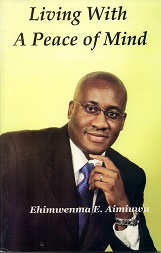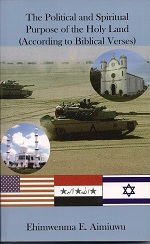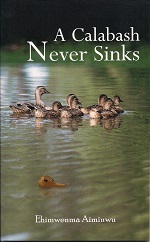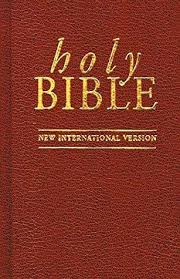


There was no land only water every where and the four sons were in a canoe, sailing, drifting, propelled by the power of eziza (wind). In the middle of the water stood a tree on top of which lived (Owonwon) the toucan. The importance of the emergence of the tree before man on earth is not lost on modern science, which recognizes that without the tree manufacturing oxygen, life on earth would have been impossible. Modern science has also confirmed the Bini cosmology that birds, insects etc preceded man to earth. The Bini myth of creation was earth based in scope.
When the children got to the middle of the water, the youngest son turned his snail shell upside down resulting in an explosion from the bottom of the water that forced volumes and volumes of sand to gush out of the water and fill up space around them for as far as the eyes could see. With the explosion, the four elements of creation, amen (water), eziza (air), arhen (fire) and oto (sand or land) were in place. Land was every where but the kids did not know what it was. They were afraid to climb out of the canoe to step on the land, so they sent the Chameleon to test its firmness. That is why the Chameleon walks with hesitation.
The youngest son of Osanobua was the only spirit out of the four sons who could have the physical human body attribute on stepping on the land, because that was the advantage of the physical or material choice he made. It was put in his hand from heaven. The other sons were deities. The youngest son, the ruler of the earth, represents innocence and so is susceptible to the powers of the deities, his brothers. These same weak and strong, good and evil, physical and spiritual, influences form the basic elements of all modern religions, with man endowed with the power to make choices.
Junior wanted his older spirit brothers to remain with him on his land. The oldest brother chose to take his spirit gift and live in what was left of the water. The other two brothers accepted junior’s invitation and deposited their spirit selves and gifts on the land as soon as they stepped on it from the canoe. Junior stepped on his land gingerly at first, then vigorously, stamping hard and repeatedly on it, running and rolling over it. He looked around and felt good and happy with his enormous gift. He called his land agbon (earth), and himself, Idu, meaning the first human on earth. He decided to walk around and explore the extent and nature of his gift. It had trees, shrubs, birds, animals, insects, which all came out of water with the land, and the land sprawled endlessly. After walking for a while pushing through shrubs; almost stepping on insects, ants and crawlers; talking to birds that appeared to be serenading him and animals that came close or ran from him, he was tired. He sat on the stump of a tree to rest, later lying on the ground to sleep.
While asleep, Osanobua came down with a chain from heaven, looked around to ensure that everything was in place, including the Sun and the Moon that were to regulate day and night and the seasons. When Idu woke up, he was excited to find himself in the presence of a huge, soothing illumination, surrounded by darkness. The earth was dark. He knew he was in the presence of the ‘Almighty’ and did not want to look directly at the illumination. He went down humbly and quickly on his knees to thank Osanobua for the immense earth gift bestowed on him.
“You are happy then?” Osanobua asked Idu. “Very, very,” Idu said, adding humbly, “but I am hungry. I have not eaten since I arrived here? What do I do for food?” Osanobua said, “Stretch your hand up above your head; the sky would respond by coming close to your hand. Pluck what ever you need from the sky. Don’t pluck more than you need to eat to satisfy your hunger at any one time though.” ”I won’t, I won’t,” Idu said eagerly, stretching his right hand right away to pluck a mouthful of food from the sky. As he munched away happily, eyes and head rolling to show joy and satisfaction, he managed to mumble, “it tastes very nice, I love it.”
“What else do you need?” Osanobua asked Idu. “Dad, I could do with a human companion. I am lonely. My brothers are spirits and I can no longer relate with them,” Idu said. Osanobua said, “You are not flesh and blood alone. You are part spirit too. Your spirit brothers are not far away. Experience would teach you how to harness wisdom, one of your spirit brothers, which would teach you how to combine your physical and spiritual energies to cultivate wealth and spiritual fulfillment, your other two spirit brothers.”
Osanobua gave the oldest son control of the waters. The Bini call this son, Olokun (meaning the god of the waters). Olokun represents aspects of life such as good health, long life, good luck, prosperity and happiness, to which man may appeal through ritual purity. The other spirit sons were allowed the freedom to use their magical powers to balance out the negative and positive forces of nature. To shorten the process of acquiring spiritual wisdom, Osanobua strengthened the mystical energy with three new forces: Oguega, Ominigbon and Iha, to provide humans with spiritual guidance to differentiate rights from wrongs.
Osanobua then told Idu to take sand with both palms from the ground and stretch his hands close together in front of him. As soon as Idu did as he was told, Osanobua called forth a female person, pointing His staff where she appeared in front of Idu. “Whao,” Idu exclaimed on beholding the beautiful female person standing in front of him. She smiled happily and went down on her knees to greet Osanobua, looking at Idu who she also greeted. Idu held her hands in response and hugged her. Osanobua said, “She is Eteghohi (a woman) and you are Etebite, (a man). In marriage you would multiply to ensure there is no shortage of hands in the management of the earth’s resources.”
As Osanobua was making to leave, Idu politely asked: “what if we have other problems and want to reach our creator quickly?” Osanobua said, “you can individually live for up to five hundred years, but you can come to me at will through your individual spirit self, ehi, whose double is permanently with me in heaven. All you would need to do is climb the Alubode hill and you are with ehi in heaven, who would bring you to me.”
As Osanobua left to his abode where the earth, water, and the sky meet, darkness was lifted from the earth. Life was sweet and easy and before long, Idu and his wife, Eteghohi, were making babies. As the years rolled by, generations of extended Idu’s family began to spread out in all directions, setting up communities, villages and towns. The different communities farthest from base spoke variations of Idu language and knew that they came from one common ancestor, Papa Idu, the ancestor of all mankind. Everything went well for thousands of years until one day when Emose, a pregnant woman, out of greed, cut more food than she needed to eat at once, from the sky. There was an immediate explosion and the sky began receding from human reach. Direct interaction with Osanobua from then on became difficult because humans could no longer walk in and out of heaven at will. Emose’s greed destroyed the age of innocence and brought into human affairs, two new spirits, Esun and Idodo, both representing obstacles humans must now overcome to reach heaven. Idodo is the spirit ‘police’ that ensures that natural or divine laws are obeyed. Idodo seeks to ensure we repent and atone for our sins. Esun is the ‘servant’ spirit or angel that takes genuine human pleas, performed in the purity of heart, before Osanobua.
Emose’s greed also brought a lot of suffering and pains to humans. Forests were soon depleted of their natural food supply, so humans began to toil hard clearing forests, burning bushes, tilling the land, planting, weeding, nurturing, threshing and harvesting. It was not easy. Before long, the lazy began to die like fowls in the desert. Farming activities began to take their toll on the ecological balance of the earth too, causing droughts, unpredictable seasons, and environmental degradation. The soil began to suffer and die from over use, yielding less and less food despite the use of excrement as manure, which in turn caused its peculiar illness, pains and deaths.
Two new spiritual forces of nature were now evident and critical to human survival. They were Uwu (death), the harbinger of death, and Ogi’uwu (the spirit of death), representing mourning, evil omen, and diseases. Ogi’uwu owns the blood of all living things. Uwu and Ogi’uwu were causing havoc among humans. Humans who could live before for ukpo iyisen-iyisen vb’ iyisen (five hundred years) at a stretch, were now dying prematurely. Death was ready to take life at any time, and Ogi’uwu was sending every one who disobeyed Osanobua (or nodiyi-Osa) to death, regardless of age.
To convince Idodo to prevail on Uwu and Ogi’uwu to temper justice with mercy and get Esun to take our pleas to Osanobua to control the forces required the services of our own individual spirit called ‘ehi.’ Ehi could no longer go directly to Osanobua because of Emose’s sin, except at the point before our birth. The Bini say there are two aspects of man. One half is ehi, which is the spirit essence, and the other half is the okpa, which is the physical person. Before birth, ehi, (the spirit essence) of the individual, humbly goes before Osanobua to request endorsement of the kind of life the individual would wish to live on earth (agbon). The request is obviously made with a baby’s sense of innocence about rights and wrongs, and the weight of the karmic debt and credit baggage of the individual from previous life cycles and styles. However, the choice of the new life style is patently and entirely the individual’s, and could be any of one or a combination of scenarios. The individual may want to be a powerful spiritualist, a rich business man or farmer, a great warrior or soldier, a happy or unhappy family man, a wimp or beggar, a revered medicine man, a famous chief, politician, or popular king, and even a notorious or very successful thief.
The request process is called ‘hi’ and leads to Osanobua stamping his sacred staff on the floor to seal the wish. The approved secret wish is only known to ehi, who is entrusted with the responsibility of ensuring that his second half, okpa, (the physical human self), keeps to the promises made before Osanobua. Ehi is the spiritual counterpart of okpa in heaven. Half of ehi comes with okpa to earth to ensure permanent link with ehi in heaven. That half is called orhion. When okpa dies, orhion stays close to okpa until okpa is properly buried and all rites are completed. Orhion, cleansed of sins, returns to heaven to be one with ehi. Ehi and okpa may come back 7 times each, making a total of fourteen times in all. Each return, known as reincarnation, provides the opportunity to atone for the sins committed in previous life times. When cleansing is complete, ehi takes its proper place in Eguae Osanobua vb’ Erinmwin (heavenly paradise).
NAIWU OSAHON Hon. Khu Mkuu (Leader, Pan-African Movement world-wide); Ameer Spiritual (Spiritual Prince) of the African race; MSc. (Salford); Dip.M.S; G.I.P.M; Dip. I.A (Liv.); D. Inst. M; G. Inst. M; G.I.W.M; A.M.N.I.M.
Awarded: Key to the City of Memphis, Tennessee, USA; Honourary Councilmanship, Memphis City Council; Honourary Citizenship, County of Shelby; Honourary Commissionership, County of Shelby, Tennessee and a silver trophy from Morehouse College, Atlanta, USA for his contributions to the unity and uplift of his race.





